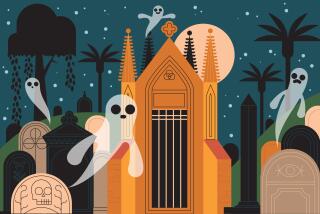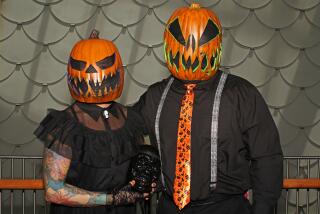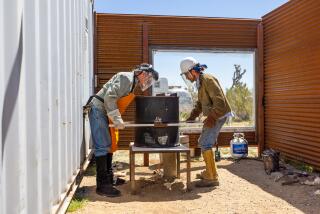Capturing starry, starry desert nights
When Tim Baskerville worked the graveyard shift as a cab driver in San Francisco, he would bring his camera along for the ride. In between fares, Baskerville would compose shots, experimenting with light and shadows, motion and shapes, forms and feeling.
Wanting to capture the essence of nighttime, Baskerville documented an urban dark side, complete with eerie city lights, ghostly building details and frolicking groups of people bathed in a surreal primeval glow.
“I’ve always been drawn to the night. There is something mysterious, dangerous and yet rejuvenating about nighttime,” he says. “Think about it. When you’re young, there is something cool about staying up all night long.”
Today, Baskerville is still staying up past his bedtime for his craft. Now a commercial art photographer, he often returns to the night for inspiration. In addition, Baskerville regularly leads night photography workshops, where he helps others capture the darkness on film.
Baskerville will be leading a group of hardy souls into the stark wilderness of Death Valley National Park at an upcoming full moon workshop from Nov. 7-9. Sponsored by the Nocturnes, a San Francisco-based night photography organization, the workshop will feature lectures, slide shows and a brief history of night photography.
But much of the workshop will be spent venturing into the desert to discover the landscapes of Death Valley, where the lack of ambient light and the magnificent date palm trees offer a surreal setting.
“With night photography, you get to utilize all the inherent qualities of film as well as use how the world moves,” he explains. “We don’t rely on Photoshop here. This is the real deal.”
Cameras of all kinds are welcome at these workshops, including 35-millimeter, large format and even high-tech digital ones. Along with instructing others about the technical aspects of creating a nighttime shot, Baskerville encourages photographers to loosen up and play with the surroundings and lighting -- both natural and man-made.
“We do lots of lighting demonstrations, how to add light, shield light and paint with the light,” he says.
“Our palette is in the camera and it’s great to see [participants] experimenting, acting like kids. Most photographers secretly want to be artists and here’s a chance for them to become Picassos.”
Los Angeles photographer Tom Pavia, who will be joining the Death Valley workshop, equates night photography to “working with a blank canvas.”
Author of “Industrial Night,” a book of nighttime photographs of urban areas, including Los Angeles, Pavia says that he particularly enjoys nocturnal shooting in the remote areas outside Palmdale and Lancaster, as well as the more industrial locales. “It’s great to go midweek because no one bothers you then,” he says.
The solitude of twilight appeals to many night photographers. For the Death Valley workshop, participants can choose to stay at comfy lodgings at nearby inns or rough it at a campsite -- the preferred method for photographers working with long exposures.
“The longest exposure I even did was eight hours,” Pavia says. “It was up at Pyramid Lake. I was camping and opened the shutter at 9 p.m., set the alarm for 5 a.m. You just roll out of your sleeping bag, trip the shutter and there you have it.”
The Nocturnes have offered workshops around the world -- San Francisco, Mono Lake in the Eastern Sierra and even Scotland. Baskerville is prepping for an upcoming session in Dublin. These workshops, he says, offer practical information, but maybe more importantly, provide a support group for like-minded photographers.
Besides, Baskerville explains, when you are sitting waiting for a one- or two-hour exposure to click, it’s nice to be among friends.
“Photographers by nature are alone in their business,” he says. “These workshops provide a sense of camaraderie and shared experiences that are not about the cutthroat business of photography. Here photographers can explore their art and have fun -- out in the dark.”
*
Photo workshop
What: Full moon night photography in Death Valley
When: Nov. 7-9
Cost: $450
Info: To register, contact the Nocturnes at P.O. Box 29074, Presidio of San Francisco, CA 94129 or (415) 824-1653. Or visit www.thenocturnes.com.
More to Read
Sign up for The Wild
We’ll help you find the best places to hike, bike and run, as well as the perfect silent spots for meditation and yoga.
You may occasionally receive promotional content from the Los Angeles Times.






